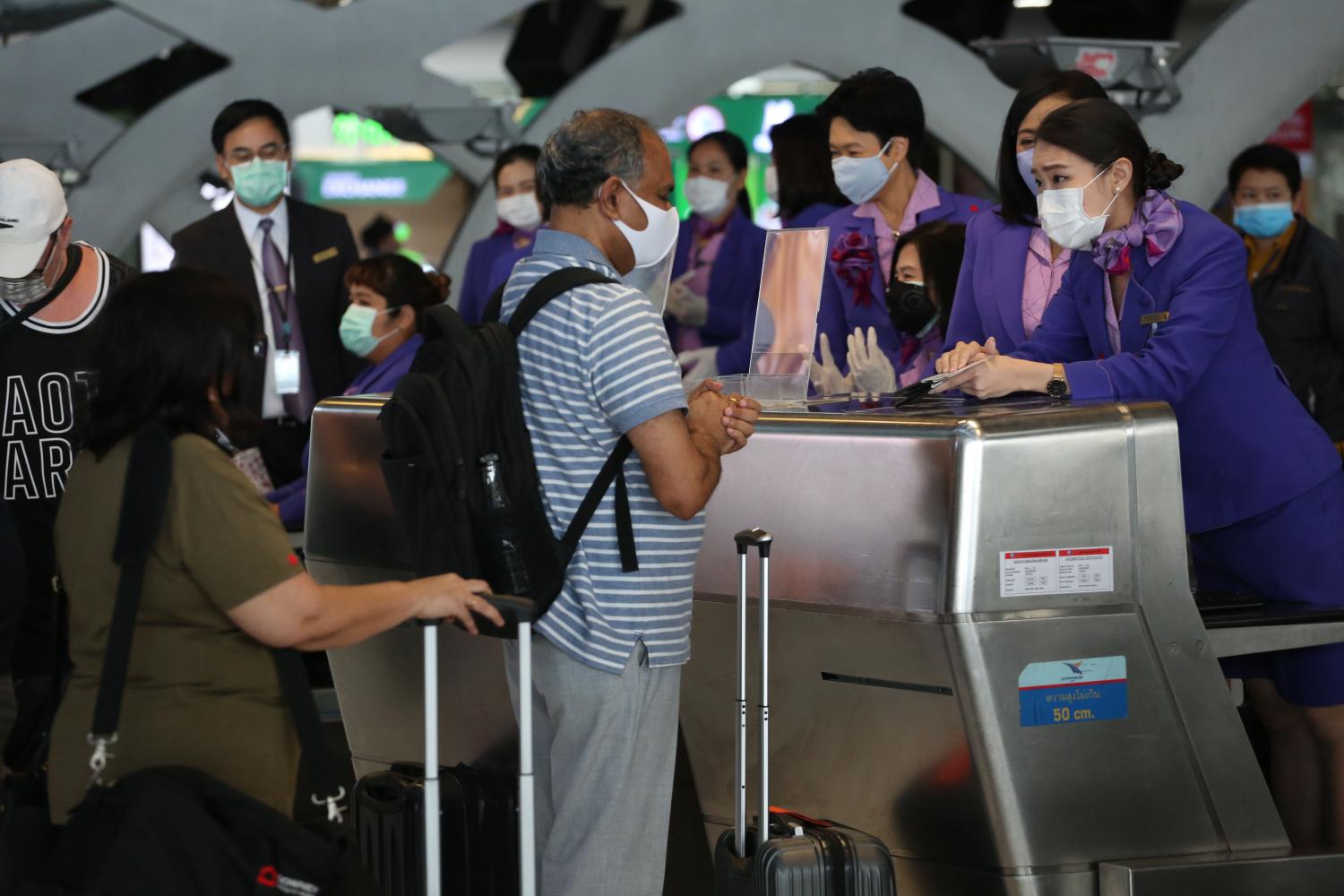
The Civil Aviation Authority of Thailand (CAAT) is planning to extend its inbound flight ban for another 15 days to prevent a possible rapid increase of Covid-19 infections as over 1,000 Thais are scheduled to return to the country this week.
If the ongoing ban, which will end on April 30, is extended, it will be the fourth in a series of temporary aviation closures which began on April 4.
Officials usually assess the situation every 15 days and "we may need to further disallow passenger aircraft from entering Thailand, but a final say will be given by the Public Health Ministry," CAAT chief Chula Sukmanop said on Monday.
Daily reports of new Covid-19 cases in the country have been below 20 since April 21, except on Saturday when the numbers rose to 53 due to infections recorded among a group of detained illegal migrant workers.
However, Mr Chula said, authorities cannot be complacent as infection rates overseas, including in neighbouring countries, remain high, making the situation volatile.
Early this month, the CAAT has extended its aviation closure to April 18 after the first ban ended on April 6.
It then extended the ban from April 18 to this Thursday, citing the need to continue measures to control entry into the country.
The latest ban was announced as more than 1,000 Thais from six countries are set to return home this week, which has prompted the military to ramp up assistance measures.
Deputy Defence Minister Chaichan Changmongkol told the army, navy and air force to give full support to the government at airports, border checkpoints, state quarantine areas and hospitals as the country braces for their arrival from April 26 to 30th.
Military officers and authorities in other agencies must "do their best and build trust" in state measures to slow down the pandemic, defence spokesman Kongcheep Tantrawanich quoted Gen Chaichan as saying after his meeting with military top brass on the plans.
A total of 1,078 Thais have registered to return through key international airports during the five-day period, officials said.
Most of them (601) will come from India, followed by 207 from Australia, 168 from New Zealand, 42 from Spain, 35 from Japan and 25 from the Netherlands.
All passengers, including about 50 children, are required to go through strict health checks and be kept under isolation for 14 days.
The Centre for Covid-19 Situation Administration (CCSA) has reported that about 9,000 Thais who have registered with Thai embassies and consulates in oversea countries will return to Thailand after April 30.
Earlier concerns about hospital personnel numbers prompted the air force to recall 50 former military doctors to work at air force-run hospitals and the Flying Training School in Nakhon Pathom's Kamphaeng Saen district.
Health officials are taking a close look at all returnees, particularly workers from Malaysia, as they are eager to maintain the low infection rates recorded in the second half of April.
The officials also raised concerns over violations to the six-hour curfew at night because this is another factor that will hinder efforts to contain the virus.
The government wants people to stay home under its shelter-in-place guidelines in order to restrict their travel and prevent them from catching or spreading the disease in public. It is also discouraging public gatherings, even small ones.
However, on Saturday night, 561 people were caught breaching the order or gathered in large numbers, according to Taweesilp Visanuyothin, spokesman for the CCSA.
The top three reasons for illegal assembly were drinking, gambling and taking drugs.
Dr Taweesilp said a number of curfew breakers had been women 51 to 60 years old who were caught gambling. "May I ask husbands to warn their wives?" he said. "Such behaviour risks spreading the disease and can put their families in trouble."
In another development, Ruangkrai Leekitwattana, an ex-senator and a former member of the dissolved Thai Raksa Chart Party, will today ask the National Anti-Corruption Commission to launch a probe into Prime Minster Prayut Chan-o-cha after he sent letters to 20 Thai business tycoons to invite them to join the government's efforts to solve the Covid-19 crisis.
Because some own companies which have concessions to run state development projects, their cooperation may lead to a conflict of interests, he warned.
